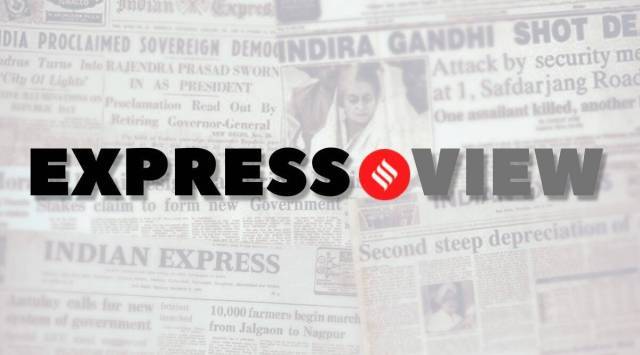Opinion Express View on IT Rules amendments: Government sets itself up as judge, jury and executioner
There can be no debate about the dangers of fake news. But a framework where a unit of the government has the discretion to determine the genuineness of online content is fraught with perils
 Recent court rulings had sought to raise the guardrails vis a vis government oversight over online content (Express Photo)
Recent court rulings had sought to raise the guardrails vis a vis government oversight over online content (Express Photo) At a time when no one seems to agree on a common definition of, well, anything, should a government-appointed “fact check unit” be the authority for determining what is “fake”, “false” or “misleading” news? Almost three months after the Central government ordered the takedown of a BBC documentary on the violence in Gujarat 2002 under the watch of then Chief Minister Narendra Modi, the Ministry of Electronics and IT notified Thursday the amendments to the Information Technology Rules 2021 which allow for the creation of a fact-check body to identify whether information related to the Central government is accurate or not.
In January, too, the government had proposed that news identified as “fake” by the Press Information Bureau (PIB) not be allowed on online intermediaries. While the reference to PIB has now been dropped, the underlying motivation that seems to be guiding the amendments is disquietingly the same — to arrogate to itself the role of an editor, with unbridled and unchecked powers to decide what can be published and what cannot.
Of course, fake news can foment violence in impatient and tumultuous times. The recent fake videos of migrants being attacked fuel panic and fear and the accused should face the full force of the law. But a framework where a unit of the government is endowed with discretion to determine the genuineness of online content is fraught with peril. It also short-circuits the procedures, safeguards and conditions laid out in Shreya Singhal v. Union of India or under Section 69A of the IT Act, which define and restrict the conditions under which government can take down online content. It’s also not in tune wuth the reformist changes the Government has brought on other aspects of tech regulation.
Under the new amendments, social media intermediaries like Facebook and Twitter would have to take down posts and internet service providers would have to block URLs marked as fake — failure to do so could lead to social media platforms losing the safe harbour protections afforded to them under Section 79 of the IT Act. Given that media organisations use social media platforms for dissemination of news, this will also have implications for news publishers, journalists, and readers.
Recent court rulings had sought to raise the guardrails vis a vis government oversight over online content. The Madras High Court in T M Krishna v. Union of India and the Bombay High Court in Agij Promotion of Nineteen One Media Pvt. Ltd. & Ors. v. Union of India put a hold on the rules which provided government a wider say on content on OTT or digital media platforms. Rajeev Chandrasekhar, Minister of State for Electronics and IT, has said that “any doubts in the minds of people that the power will be misused on behalf of the government will be addressed”. However, in a climate where laws are increasingly weaponised to curb opposition and dissent, such provisions will be misused. The government must rethink the amendment.





